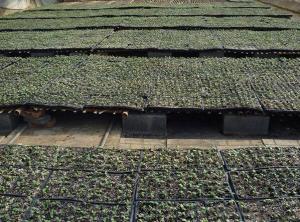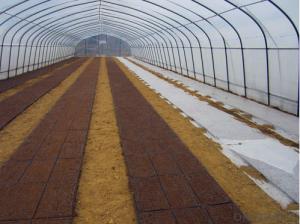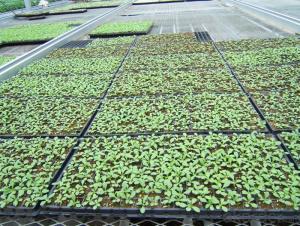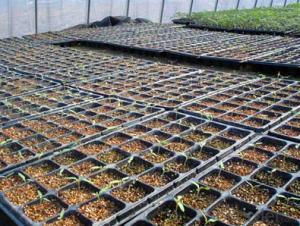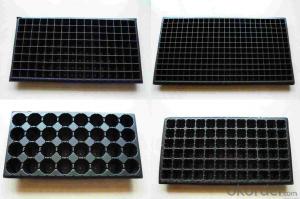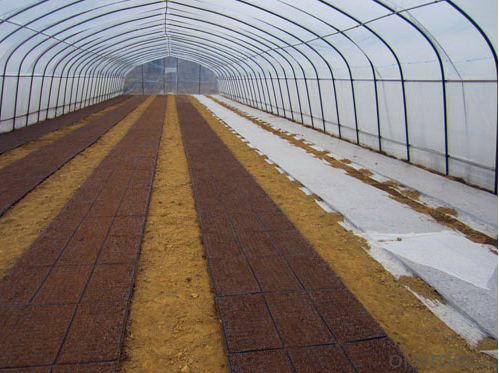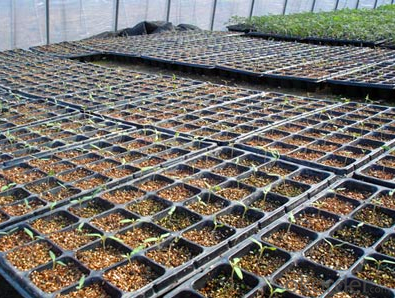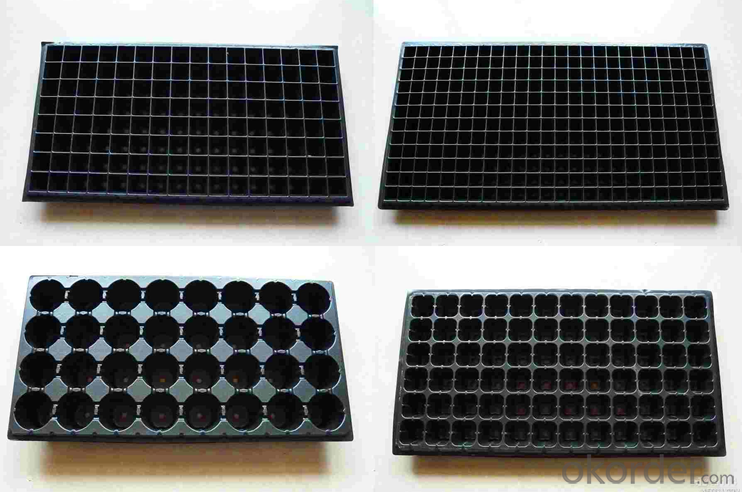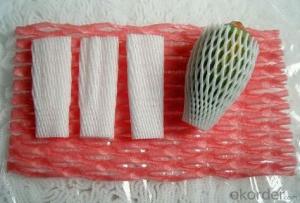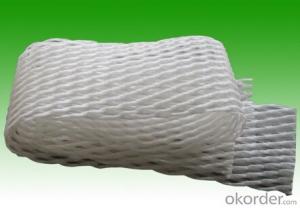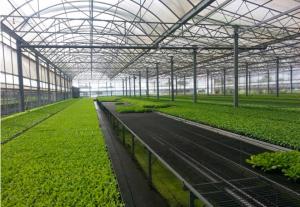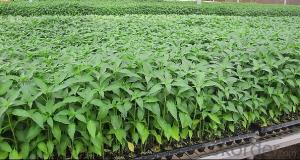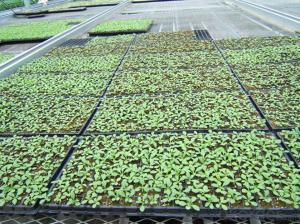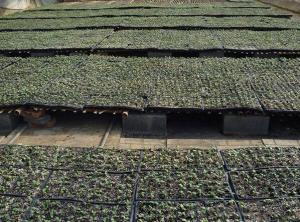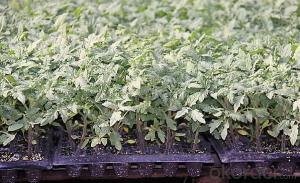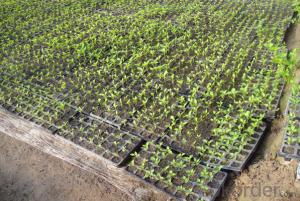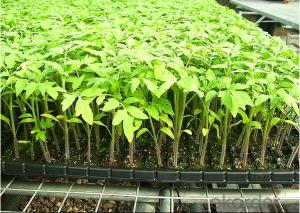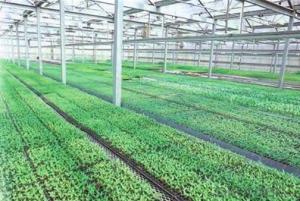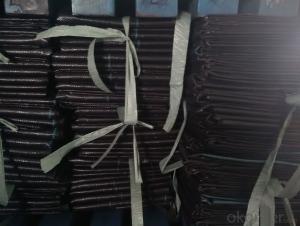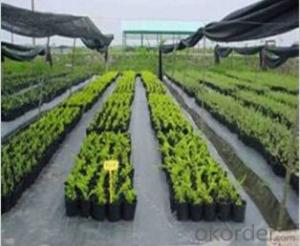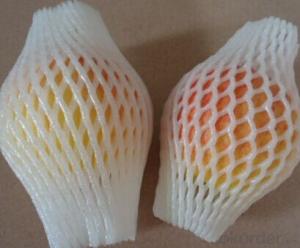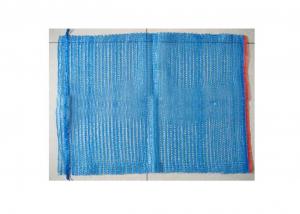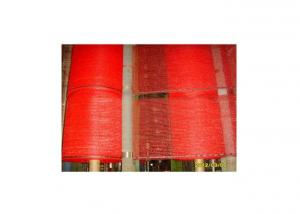Plug Trays (Growing and Seedling) HIPS Made Plastic Plug Tray for Greenhouse
- Loading Port:
- China main port
- Payment Terms:
- TT OR LC
- Min Order Qty:
- 3000 pc
- Supply Capability:
- 50000 pc/month
OKorder Service Pledge
OKorder Financial Service
You Might Also Like
Brief Introduction to CNBM:
CNBM International Corporation (CNBM International) is the most important trading platform of CNBM Group Corporation, a state-owned company under the direct supervision of State-owned Assets Supervision and Administration Commission of the State Council.
CNBM International is highly recognized by its business partners and clients all over the world and has obtained rapid development under the spirit of win-win. We will carry on the mutual beneficial, innovative and revolutionary trading structure as we did before, create value for our employees, share holders and clients and benefit the whole society in our future development.
Features of Plug Trays (Growing and Seedling) HIPS Made Plastic Plug Tray for Greenhouse:
· Material: HIPS
· Thickness: 0.5mm-1.5mm, Standard:1mm
· Weight: 80g(±5)g-230g(±5)g, Standard weight:155g(±5)g
· Size: length:490mm-540mm, width:190mm-345mm,depth:25mm-150mm
· Standard:540mmX280mm
· Cell count: 18-512
· Package: In Carton
· Warrenty: 8-10 times
Picture:
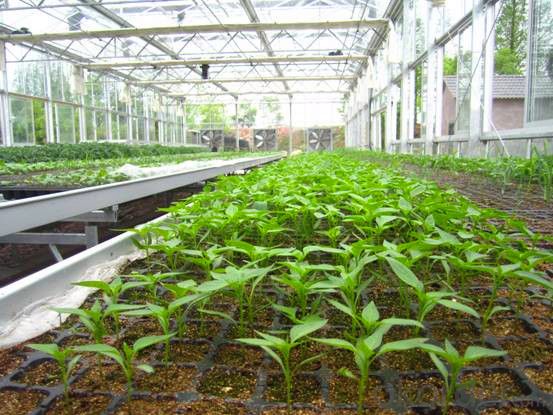
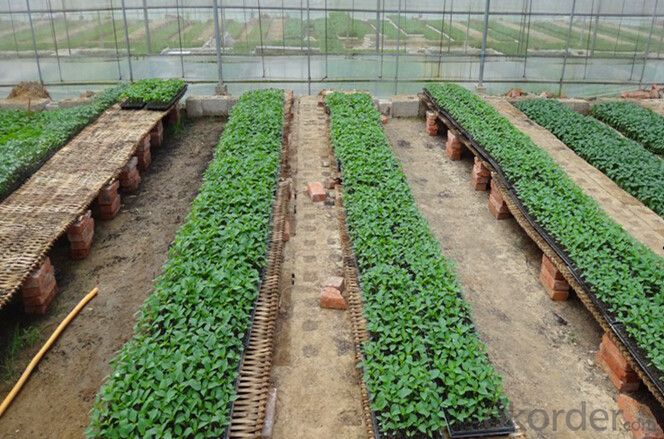
Specification of Plug Trays (Growing and Seedling) HIPS Made Plastic Plug Tray for Greenhouse:
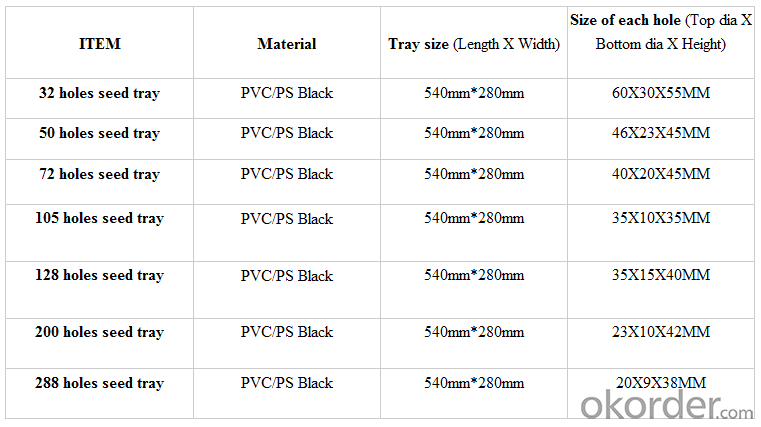
FAQ of Plug Trays (Growing and Seedling) HIPS Made Plastic Plug Tray for Greenhouse:
Q:1.How many times can the seed tray be used?
A: Under the same environment, it is decided by the thickness. Usually 0.6mm thickness can be used for 1 or 2 times.
1.0 thickness can be used for 3-4 times. 1.5 thickness can be used for 8-10 times.
Q: 2.How long is the production time?
A: Usually one to two weeks.
Q: 3.How is the seed tray being packaged?
A: They can be packaged in carton or pallets. Carton size is 1375px*725px*1250px.
- Q: What is the working principle of PVC plastic quick release nozzle?
- PVC is polyvinyl chloride, it is one of the largest plastic products in the world. It is cheap and widely used. PVC resin is white or light yellow powder. It can not be used alone. It must be modified. PVC is an amorphous white powder with poor branching degree and poor stability to light and heat. Different additives can be added according to different uses, and polyvinyl chloride plastics can exhibit different physical and mechanical properties. A variety of hard, soft and transparent products can be made by adding proper amount of plasticizer in PVC resin.
- Q: Where can I find a discount online for Plastic Bingo Chips - Red - 300 chips
- Plastic okorder Sales Rank: #1,581 in Toys Games Product Description 3/4 inch size. Approximately 300 plastic chips per reusable container. Radius edge. easy pickup. Commonly used at bingo and other games.
- Q: What are the rules or laws governing the disposal of bioplastics in agricultural settings?
- <p>Regulations on the disposal of bioplastics in agriculture vary by region and country. In many places, bioplastics are treated similarly to traditional plastics, requiring proper disposal methods to prevent environmental harm. Some areas may have specific guidelines for composting bioplastics, emphasizing the need for industrial composting facilities to ensure complete biodegradation. It's crucial for farmers and agricultural businesses to be aware of local regulations, as improper disposal can lead to fines or penalties. Additionally, the European Union has been working on standards for biodegradable plastics, which may influence agricultural disposal practices. It's always best to consult with local environmental agencies for the most accurate and current information.</p>
- Q: Explain how the use of agricultural plastic mulch can help in reducing soil erosion.
- <p>Agricultural plastic mulch reduces soil erosion by providing a physical barrier on the soil surface. This barrier prevents raindrops from directly impacting the soil, thereby reducing the splash erosion that can dislodge soil particles. Additionally, the mulch helps to slow down the velocity of water runoff, which decreases the erosive force of the water. By retaining moisture in the soil, plastic mulch also reduces the need for tillage, which can lead to soil compaction and erosion. Furthermore, mulch can enhance soil structure by improving aggregation, which in turn increases the soil's resistance to erosion. Overall, the use of plastic mulch can be an effective strategy for soil conservation in agricultural settings.</p>
- Q: How do you prevent ground cover plants from competing with other plants?
- One way to prevent ground cover plants from competing with other plants is by creating physical barriers, such as installing edging or borders, to keep the ground cover contained in a specific area. Another method is to regularly prune or trim the ground cover plants to restrict their growth and prevent them from encroaching on other plants. Additionally, proper spacing between plants during planting can help prevent competition for nutrients and sunlight. Implementing mulching around other plants can also suppress the growth of ground cover plants and limit their ability to compete.
- Q: Two days ago, I was baking a trey of chicken nuggets in the oven when 20 min later or so, I smelled an awful smell. I went to the kitchen and realized I put the chicken to cook on a plastic tray. The tray melted all oven the rack and onto the bottom of the oven. Somehow, none managed to get on about half of the chicken (which I removed from the oven and placed on a plate). I didn't eat any of the chicken from the oven that day, but the next day i saw the plate (and thinking it was some of the good chicken I had made that morning) ate it. There was no plastic on the food and it tasted normal but when I found out what I did, I was really afraid that I could have poisoned myself! Its been over a day and I'm fine, but should I be worried at all? The plastic did not burn or catch on fire, it only melted...
- extremely tough thing. check out on yahoo or google. it might help!
- Q: Where can I get black plastic cube in specific dimensions for reasonable prices?
- This is difficult because there are many plastic materials that are available in the color black. Small quantities of plastic cubes are normally made by cutting sheets into strips and then cross cut to make the cube. Black ABS, Black UHMW, Black Acetal and Black Nylon are all common materials available in sheet that can be cut to cubes. Also, the size of cube you are looking for makes this tough to answer. Solid plastic sheets are made from .125 (1/8) to over 2 thick. If you are looking for something larger than the 2 cube, it may need to be made by bonding sheets together to make a hollow cube - or box. Glad to provide more detail if you can supply some additional specifics on what it will be used for and the size range. Thanks
- Q: Are there nursery trays with adjustable cell sizes?
- Yes, there are nursery trays available with adjustable cell sizes. These trays typically have removable dividers or inserts that allow for customization of cell sizes to accommodate different plant sizes or spacing requirements.
- Q: Can nursery trays be used for starting flower cuttings?
- Yes, nursery trays can be used for starting flower cuttings. They provide a convenient and organized way to propagate multiple cuttings at once, with separate compartments for each cutting. Additionally, nursery trays often have drainage holes, which help prevent waterlogging and promote healthy root development.
Send your message to us
Plug Trays (Growing and Seedling) HIPS Made Plastic Plug Tray for Greenhouse
- Loading Port:
- China main port
- Payment Terms:
- TT OR LC
- Min Order Qty:
- 3000 pc
- Supply Capability:
- 50000 pc/month
OKorder Service Pledge
OKorder Financial Service
Similar products
Hot products
Hot Searches
Related keywords
